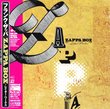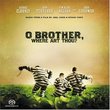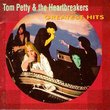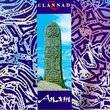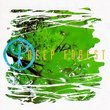| All Artists: David Arkenstone Title: In the Wake of the Wind Members Wishing: 0 Total Copies: 3 Label: Narada Original Release Date: 4/16/1991 Re-Release Date: 4/2/1991 Genres: Jazz, New Age, Pop, Rock, Soundtracks Styles: Vocal Jazz, Meditation, Adult Contemporary, Vocal Pop, Adult Alternative, Progressive, Electronic Number of Discs: 1 SwapaCD Credits: 1 UPCs: 083616400327, 0083616400358, 076742400347, 083616400341, 083616400358 |
Search - David Arkenstone :: In the Wake of the Wind
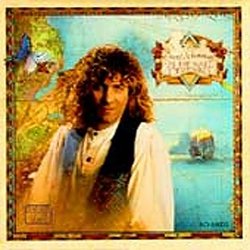 | David Arkenstone In the Wake of the Wind Genres: Jazz, New Age, Pop, Rock, Soundtracks
Composer and multi-instrumentalist David Arkenstone has two distinct musical realms he loves to explore: world-influenced contemporary instrumental, such as last year's Grammy-nominated Citizen of the World, and symphonic ... more » ![header=[] body=[This CD is available to be requested as disc only.]](/images/attributes/disc.png?v=430e6b0a) ![header=[] body=[This CD is available to be requested with the disc and back insert.]](/images/attributes/disc_back.png?v=430e6b0a) ![header=[] body=[This CD is available to be requested with the disc and front insert.]](/images/attributes/disc_front.png?v=430e6b0a) ![header=[] body=[This CD is available to be requested with the disc, front and back inserts.]](/images/attributes/disc_front_back.png?v=430e6b0a) |
Larger Image |
CD DetailsSynopsis
Amazon.com Composer and multi-instrumentalist David Arkenstone has two distinct musical realms he loves to explore: world-influenced contemporary instrumental, such as last year's Grammy-nominated Citizen of the World, and symphonic pop and rock, such as this 1991 Grammy-nominated masterwork. An hourlong instrumental journey, In the Wake of the Wind is the dazzling soundtrack to the journeys of an adventurous young man named Andolin who wishes to roam the stormy seas that swept his grandfather away. The album is accompanied by a foldout map and text in the vein of master fantasy author J.R.R. Tolkien, although, in the liner notes, Arkenstone also urges listeners to conjure up a personal narrative. The composer's spirited sense of adventure imbues these 16 tracks with a life of their own. Certainly the album's best moments are its orchestrally driven pieces, most notably the gracefully elegant "Southern Cross," which features pristine acoustic guitar sounds, and the triumphant "Overture." However, slower pieces such as the sensual, Middle Eastern-flavored "Rug Merchant" and the soothing children's choir in "Sailing" provide a delicate balance to the more playful, boisterous compositions. Arkenstone also dedicated the tender "Morning Sun on the Sails" to one of his principal musical influences, the late Aaron Copland, a composer who also crossed genre boundaries. --Bryan Reesman Similar CDs
Similarly Requested CDs
|
CD ReviewsChanged my life... Justin R. Macumber | Fort Worth, Texas United States | 09/06/2000 (5 out of 5 stars) "That isn't an overstatement. I was in the tail end of my high school journey, and my music life was centered mainly around rap (hey, I was 17) and hard rock. Aside from the rare excursion into classical, I'd never ventured far from those genres. But, one day I was in my favorite music store, and they had this big display for an album called "In The Wake Of The Wind." When I asked about it, I was told that it was a New Age album from a guy named David Arkenstone. The display featured a big map of a fantasy land, and there was an associated contest going on with it. Well, I thought, what the heck? Let's give it a whirl.Almost ten years later and I'm still whirling. After hearing "Wind" I was hooked. The music had such passion to it, and the soundscape he created was almost visible in its intensity. I was swept away with the music, caught in the fantasy that Arkenstone was creating, and on pieces like Overture I could practically feel the salty spray of the waves on my face and the wood of the tilting deck beneath my feet. He really just blew me away. And from there I was an Arkenstone fan, buying each CD as it came out, and getting his past works. Those led me to other New Age CDs, and now my collection is bulging at the seams. This one album helped to open my eyes to what music could really be. It truly changed my life. If you want to be taken on a journey yourself, I highly recommend this CD. Do yourself a favor and buy it today." Kitaro Revisited Marc Ruby? | Warren, MI USA | 09/01/2003 (4 out of 5 stars) "David Arkenstone enjoys what I consider a 'secretive' popularity. Few people would recognize the name, but his music is pervasive. Primarily known for his electronic works, 'In the Wake of the Wind' represents his first attempt at a work that is, for the most part, acoustic. It is also his forst try at producing a coherent album rather than a simply collection of disparate pieces.He presents two suites, each based on an adventure set in a fantasy world where Andolin, a young man, sets out on a journey to rescue his world from the tides of entropy. The suites are closely related, by both the story and the intertwining musical themes that Arkenstone uses to get his ideas across.While interesting in places, and generally pleasant to listen to, this is not remarkable music. Thematically, it owes a great deal to Aaron Copeland, and structurally it is reminiscent of Kitaro's 'Silk Road.' Not that the work is 'borrowed' in any sense, but it makes no unique contribution. And it lacks the compelling qualities of the other two composers. This is pure symphonic pop, and that is not necessarily a bad thing.I do like listening to it, but I tend to think of 'In the Wake of the Wind,' as the musical score for a film that was never made, rather than as a serious musical effort. It is, however an impressive display of Arkenstone's mastery of the arcane art of production - the sound is excellent and seamless throughout - something that is very tough to achieve when one is trying to balance acoustic and electronic composition." David Arkenstone - In the Wake of the Wind Becky | South Lyon, Michigan | 05/21/2003 (5 out of 5 stars) "The first time I heard of David Arkenstone was this past summer when my high school band director gave us the music for our show this year. We performed Voyage of the Stardancer: Overture, Stardancer, Lion's Breath, Morning Sun on the Sails, Through the Gates, and Sailing. It's not the usual music you hear a marching band performing, but it worked. As the season went on, I grew to really like the music, and wanted to hear more of it. The CD has completly different versions of the songs. The melody is all the same, but all the selections are longer and have a different feel some of the time. I actually like the versions on the CD better because they're softer, and more relaxing. You can usually hear the Irish background in the music, but it comes out really clear in Through the Gates. If you even slightly like the feel of Irish music, you should definatly listen to this! It's so awesome, and so worth getting it."
|

 Track Listings (16) - Disc #1
Track Listings (16) - Disc #1
